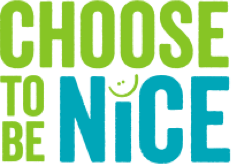There is a corny tradition practiced by many families around Thanksgiving that involves having everyone gathered at the table say something that they’re thankful for. But is it really so corny? Too often we don’t take the time to be grateful for what we have. Instead, we focus on what we don’t have or what we want.
 Here’s the ironic thing. We want things because we think they will make us happy, but happiness really comes from appreciating what we already have. There’s nothing wrong with wanting more or trying to change our life’s circumstances. But if that’s our primary focus, we will always feel lacking and that creates a sense of need that makes us miserable.
Here’s the ironic thing. We want things because we think they will make us happy, but happiness really comes from appreciating what we already have. There’s nothing wrong with wanting more or trying to change our life’s circumstances. But if that’s our primary focus, we will always feel lacking and that creates a sense of need that makes us miserable.
 This notion is supported by research.
This notion is supported by research.
In one study, one group of participants were asked to write about the things they were grateful for that had occurred during the week, a second group wrote about the daily irritations or things that had displeased them, and a third group wrote about events that had affected them with no emphasis on them being positive or negative. And guess what? After ten weeks those focused on gratitude were more optimistic and felt better about their lives. But there’s more. They also exercised more and visited the doctor less often than those writing about irritations. The called it “counting blessings versus counting burdens.”
What could happiness possibly have to do with kindness? Simply put, the two are inextricably linked. Happiness puts people in a state in which they are more likely to be kind. Consider this from the introduction to a study on how gratitude is linked to happiness:
Compared with less happy people, happy people have better social relationships and more pleasant everyday lives. For example, Diener and Seligman (2002) showed that very happy people have highly satisfying relationships with friends, romantic partners, and family members and that, compared to their less happy peers, they report more positive events and emotions in their daily lives relative to negative ones. They also found that very happy people are more extroverted, more agreeable, and less neurotic and that they score lower on several measures of psychopathology. Other studies have shown that subjective happiness is one of the key factors in subjective well-being and overall satisfaction with life (Buss, 2000; Diener, 2000; Strack et al., 1991; Suh et al., 1998).
So gratitude fuels happiness and happiness fuels being kind. But there’s more. Kindness can also fuel gratitude. When you choose to be nice to someone else, it’s a way of expressing gratitude. But choosing to reach out to someone else, to give to them or to help them, makes you more aware of how much you have. The fact that you have something to offer someone else indicates that you have something.
When I go to a restaurant, I will pay for the food and therefore may have a sense of entitlement that someone would bring it to me and then clear away the dishes. But I recognize that this is more than a financial transaction. It’s human interaction. Whether or not I’m paying for it, a person is spending his or her time taking care of me. And that is something I’m very thankful for, especially the part about not having to wash the dishes. So, I will gladly express my gratitude and let this person know that I respect the work that is being done. I say please and thank you. I smile at the person and look him or her in the eye. I leave a tip and maybe a note.
 If, on the other hand, I feel that I don’t have enough, I am less willing to give to others or go out of my way for them. They will likely respond with similar indifference or even negativity and that then perpetuates this swirl of unfortunate interactions.
If, on the other hand, I feel that I don’t have enough, I am less willing to give to others or go out of my way for them. They will likely respond with similar indifference or even negativity and that then perpetuates this swirl of unfortunate interactions.
It doesn’t matter where you jump in on the cycle, just jump in. Do some nice things for people and watch how much more grateful you feel and consequently how much happier. Or, express gratitude and see how much happier you feel and how much more likely you are to want to be nice to those around you.
We have a choice about how we want to be in the world. Let’s make it count.
Wishing you all the best during this Thanksgiving Season!
Dina
